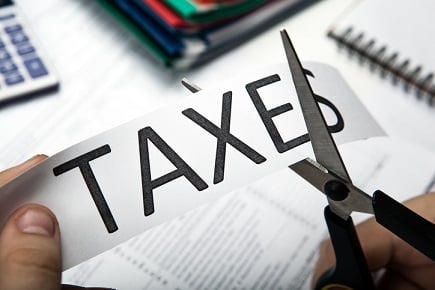The group argued that taxes applied unfairly to investment-fund management fees undermine Canadians’ retirement-planning efforts

In a written submission for consultations in advance of the 2020 budget, the Investment Funds Institute of Canada (IFIC) has called on the government to discontinue the GST/HST charged on mutual funds held in RRSP accounts.
“Today, it is increasingly challenging for Canadians to achieve financial readiness for retirement,” IFIC noted in its submission.
Fewer workers are able to rely on employer-sponsored pension plans, the group said, as less than a third can count on an employer-sponsored plan in retirement and even fewer are covered by a defined-benefit pension plan. Citing research from Matthew Greenwald & Associates, the group added that only 45% of Canadians are confident in their ability to maintain their standard of living in retirement until they are 85, and that percentage dips to 42%for a life expectancy of 90.
“Contributing to concerns about retirement readiness, low interest rates have decreased the yields of many fixed income investments (bonds, Guaranteed Investment Certificates, etc.), which traditionally played a significant role in retirement planning,” the group noted.
The report also referred to research from Franklin Templeton Investments, which found 28% of Canadian Gen Xers haven’t set aside anything for retirement. Income constraints, considerable expenses, and prioritization of debt were cited as reasons why 56% of Gen Xers in Canada would consider retiring later due to a shortfall in savings.
“While government programs like RRSPs and TFSAs are designed to encourage Canadians to save for retirement, these efforts are undermined by sales taxes that continue to be unfairly applied to investment fund management fees,” IFIC said.
The group argued that while sales taxes account for 11% of mutual-fund management expense ratios, Canadians pay just 1% and 3% in embedded sales taxes for a GIC, and none from directly purchasing securities like stocks and bonds. Pension funds also face GST/HST, but IFIC said that they are eligible for a 33% rebate of sales taxes paid, effectively reducing the tax bite to 7.4%.
In effect, IFIC argued, sales taxes on investment funds have an outsized impact on lower-income investors who turn to investment funds in their pursuit of professional financial advice, access to equity markets, and portfolio diversification. “Wealthier investors can access and afford to pay out of pocket for investment management and advice, and are able to deduct those fees from their taxes,” IFIC said.
Over time, the group argued, sales taxes on investment funds can add up. An investor who places $5,000 yearly in a fund for 25 years, with average annual returns of 8% net of fees, is predicted to pay $7,307 in such taxes over that time. A yearly investment of $10,000 would result in $14,614 in taxes, while investing $20,000 a year would lead to $29,228.10 in tax costs. Given those assumptions and regardless of the amount invested, the IFIC said taxes would add six extra months to a 30-year timeline for a given financial goal.
“Targeting investment funds in RRSP accounts for this tax relief is a simple, straightforward and easily explained approach, and the benefits flow directly to investor,” the IFIC said. “The change would be seamless for government and investment fund investors, requiring no Canada Revenue Agency processing or system changes to implement.”



